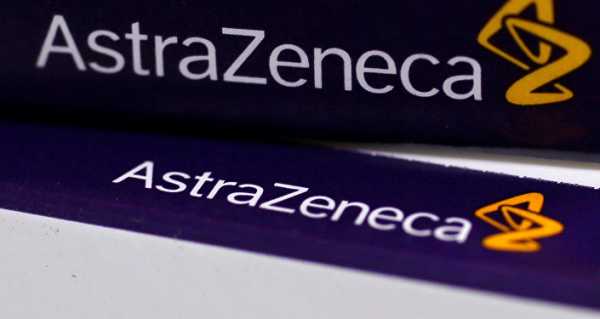
Uncertainty has mounted over the fate of AstraZeneca’s vaccine following reports of inconsistent efficacy. The inoculation, which was developed in collaboration with Oxford University, is based on the monkey adenoviral vector, which experts say hasn’t proved its efficacy yet.
AstraZeneca’s anti-COVID vaccine has suffered another blow, as the head of the US Operation Warp Speed programme unveiled that the drug had shown its highest level of efficacy in a younger population.
The vaccine’s impressive 90% efficacy was achieved in a group of people, whose age did not exceed 55, as they were also given a half-dose before a full-dose booster. In the meantime, when tested in a group of participants aged over 55, the efficacy dropped by just under a third, to 62 percent.
Researchers at Oxford University say they don’t know the reason behind the inconsistent efficacy, but will investigate the issue in the near future.
Suitable For Less Developed Countries
The results of the trials have raised eyebrows among scientists. Geoffrey Porges, an SVB Leerink analyst said the AstraZeneca’s decision to show the vaccine’s highest level of efficacy in a small groups is a sign that the company wants to promote the inoculation in less developed countries.
The analyst also told Bloomberg earlier that he didn’t “believe that the FDA will look positively at any trial where the dose, or the age cohorts, or any other variable were changed mid-trial, inadvertently or deliberately”.
Another detail that has cast doubt over the fate of AstraZeneca’s vaccine is its ability to protect against COVID-19. The company said their brainchild is 70 percent effective against the disease, which has claimed the lives of 1.4 million people and infected almost 60 million worldwide.
Age groups aside, AstraZeneca’s biggest shortcoming lie in its actual numbers and these of its competition: the company said their brainchild is on average 70 percent effective against the disease, which has claimed the lives of 1.4 million people and infected almost 60 million. In the meantime, according to the data from Russia’s Gamaleya Research Institute, Pfizer, all their vaccines have shown 95 percent efficacy.
The staggering gap has not gone unnoticed as Dr Anthony Fauci, the US’ leading epidemiologist and director of the National Institute of Allergy and Infectious Diseases, told STAT News.
In Human Adenovirus We Trust
Another major point of concern with the inoculation developed by AstraZeneca and Oxford University is the fact that it is based on the chimpanzee adenovirus vector, a method that has never been used before in vaccines. The issue’s already been raised by scientists from Gamaleya Research Institute, who have warned that there were no long-term studies that have demonstrated the efficacy and safety of the method.
By comparison, the human adenovirus vector used in vaccines developed by other countries, including in Russia’s Sputnik V, has been tested pre-Covid and proved its effectiveness. This approach was successfully used in vaccines against other diseases, such as inoculation for Ebola and MERS, another type of coronavirus which emerged in the Middle East.
The latest survey conducted by YouGov, the UK’s leading company in market research and data analytics, revealed that Russia is the most trusted vaccine manufacturer (21%), followed by the US (15%) and China (13%).
73 percent of respondents expressed readiness to be vaccinated against the coronavirus, with nine out of ten people choosing a vaccine based on the human adenoviral vector. Respondents from eleven countries, including Indonesia, Malaysia, Mexico, Nigeria, Saudi Arabia, the Philippines, the United Arab Emirates, and Vietnam, took part in the survey.
Sourse: sputniknews.com
0.00 (0%) 0 votes


































